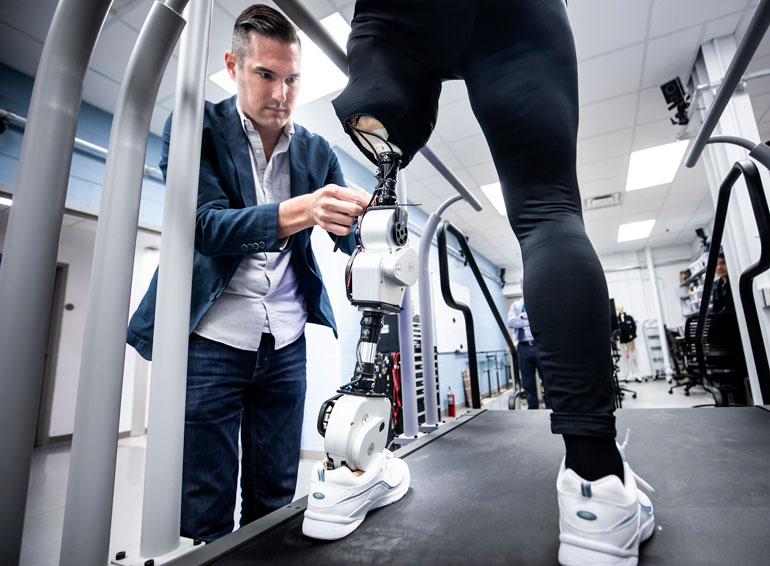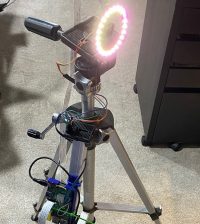- makeITcircular 2024 content launched – Part of Maker Faire Rome 2024Posted 2 weeks ago
- Application For Maker Faire Rome 2024: Deadline June 20thPosted 2 months ago
- Building a 3D Digital Clock with ArduinoPosted 7 months ago
- Creating a controller for Minecraft with realistic body movements using ArduinoPosted 7 months ago
- Snowflake with ArduinoPosted 8 months ago
- Holographic Christmas TreePosted 8 months ago
- Segstick: Build Your Own Self-Balancing Vehicle in Just 2 Days with ArduinoPosted 8 months ago
- ZSWatch: An Open-Source Smartwatch Project Based on the Zephyr Operating SystemPosted 9 months ago
- What is IoT and which devices to usePosted 9 months ago
- Maker Faire Rome Unveils Thrilling “Padel Smash Future” Pavilion for Sports EnthusiastsPosted 10 months ago
Open Source Low-Cost, Portable and High-Performance Bionic Leg

A new open-source, artificially intelligent prosthetic leg designed by researchers at the University of Michigan and Shirley Ryan AbilityLab is now available to the scientific community. As an open-source project, anyone can contribute to improving the leg’s design and function.
Although the designs and code are free, the leg is still a high-end, state-of-the-art prosthetic, according to the researchers. It’s built around a plug-and-play architecture that will let scientists and biomedical engineers avoid research-and-development costs in the millions of dollars and immediately begin testing on prosthetics for the knee and ankle. It effectively lowers the barriers to entry for researchers.
Researchers who work directly with people with disabilities often have to build their own robotic legs. Instead of starting from scratch, researchers can take this common platform and, after some assembly, begin working on better ways to help people with mobility impairments. The common platform also lets engineers conduct direct comparisons of control algorithms, which researchers can then iterate and build upon.
The key to making it work, then, is AI. The Raspberry Pi-powered AI-based control uses a combination of muscle contraction signals and sensor data from within the bionic leg to guess what a user is going to do next, and responds accordingly.















